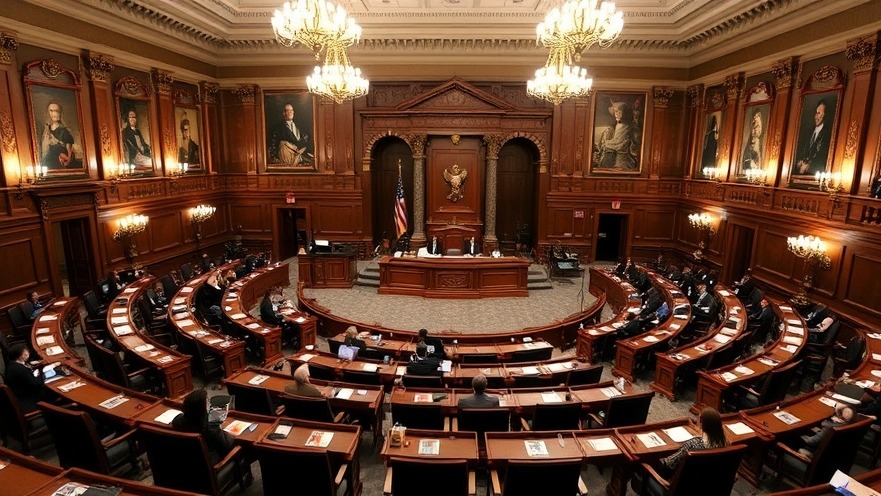
Governor Abbott's Unprecedented Move: A Call for Special Legislative Action
In a surprising turn of events, Texas Governor Greg Abbott has announced a special legislative session set to begin on July 21, 2025. This comes after he vetoed 26 bills just before the deadline, prompting concerns and discussions across the state. Abbott's vetoes, which included significant legislation like a proposed ban on THC products, are set to be central topics as lawmakers reconvene in Austin.
What's On the Agenda for the Special Session?
Abbott's list of priorities includes six bills that will be re-examined, with Senate Bill 3, aimed at banning sales of hemp products containing THC, garnering particular attention. In addition, lawmakers will revisit issues like recording requirements for real property, regulations on water projects, protections for trafficking victims, and the operation of facilities related to semiconductor production. With the governor retaining the power to add more issues to the agenda, the landscape of Texas legislative politics remains fluid.
Understanding the Context Around the Vetoes
The context behind Abbott's vetoes reveals a contentious political climate in Texas. Among the vetoed bills was House Bill 413, which aimed to prevent indefinite pre-trial detention, a proposal co-authored by a bipartisan group. Critics have pointed to this veto as part of a broader strategy by Abbott to maintain tough-on-crime policies following significant reform debates in the state.
Similarly, Senate Bill 974, which would have allowed public school teachers on appraisal review boards, was dropped due to conservative backlash. This highlights an ongoing struggle between progressive measures and conservative values within Texas legislative discussions, a tussle that appears set to intensify in the special session.
The Impact of Legislative Dynamics on Texas Politics
The political dynamics surrounding Abbott's decisions hint at deeper implications for Texas politics, particularly as the 2026 midterms approach. The governor has faced pressure from notable figures, including President Donald Trump, to reshape Texas’ congressional districts—an issue not included in the current call for the session. This exclusion raises questions about Abbott's focus and priorities as he navigates complex relationships between state governance and national political pressures.
Future Implications for Texas Legislation
As lawmakers descend upon the Capitol, the decisions made during this special session will undoubtedly leave a lasting imprint on Texas law and society. Abbott's focus on issues such as public safety, educational policies, and economic frameworks indicates a strategic maneuver not just for immediate legislative results but also for setting the stage in the run-up to upcoming elections.
In overseeing these discussions, Abbott must balance opposing viewpoints that reflect the diverse opinions of Texas residents. The upcoming legislative session could serve as a pivotal moment, clarifying the state's political trajectory in 2025 and beyond.
Why These Legislative Changes Matter
The bills under consideration in the upcoming special session are critical as they touch on public safety, economy, and education—areas central to Texas' identity and future. As citizens watch closely, the interplay between state policy and public sentiment will be crucial in shaping the Lone Star State's legislative landscape.
Understanding these dynamics is not only important for political enthusiasts; it is also pertinent for average Texans whose lives are directly impacted by these legislative changes. As discussions evolve, the continued engagement from constituents will be vital in holding lawmakers accountable.
 Add Element
Add Element  Add Row
Add Row 



Write A Comment